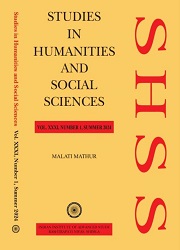Transnational and Cosmopolitan Echoes in Salman Rushdie’s Shalimar the Clown
Keywords:
Cosmopolitanism, Globality, International/Intra-national Mobility, Diasporic DisplacementAbstract
This paper has two parts. The first part deals with the theorisation of the notions of ‘transnationalism’ and ‘cosmopolitanism’ based on theoretical postulations of thinkers such as Bill Ashcroft, Gerard Delanty, Robert Fine, Kwame Antony Appiah and Homi K. Bhabha. The second part undertakes textual analysis of Salman Rushdie’s novel, Shalimar the Clown published in 2005 from the viewpoint of transnational and cosmopolitan perspective with a view to establishing the fact that the core of Rushdie’s fictional ethics comprises a borderless view of the world constricted and fragmented by a narrow sense of nationality. The world that Rushdie portrays in the novel is diasporic characterized by national, intra-national and transnational mobility of his characters viz. Max Ophuls, Shalimar, and Boonyi. Rushdie’s insightful observation concerning the strife-torn world of today makes us realize instantaneously how “everywhere is everywhere,” which stands as evidence of the fact that we live in a world wherein borders are meaningless geopolitical markers and where the sense of globality prevails powerfully. It in no way implies that the local/native is in any way denigrated; it rather gets problematized in an ever-changing global/transnational context.


